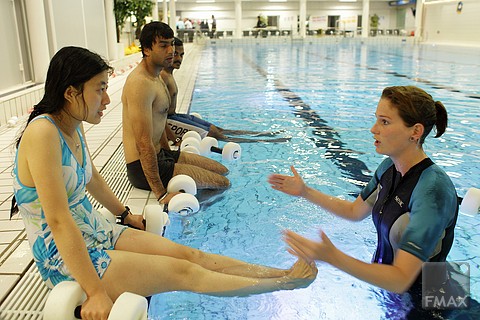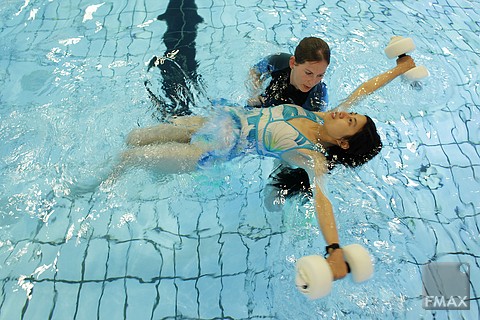Innovation policy
The biodiversity of science is under pressure from the Dutch government’s innovation policy, said Robbert Dijkgraaf, president of the Royal Netherlands Academy of Arts and Sciences during an alumni symposium at TU Delft.
He foresees major problems now that the government has identified nine top sectors in which knowledge institutes, government and private companies must partner in research & development. Companies that invest in these joint projects will receive major tax breaks from the government, which, Dijkgraaf warns, will lead to between 500 million and 1 billion euros being removed from the overall scientific research system.
Gay policy
Homosexuals account for a higher than average percentage of international expats and students in the Netherlands. They hope to live freer lives in the Netherlands, but this is often not the case, according to a letter sent by the Delft Homosexuality Workgroup (DWH) and Roze Blok Delft (RBD) to members of Delft’s city council. Dirk-Jan Dekker, DWH’s chairman, believes that homosexual international employees and students should be afforded ‘primary care’. At TU Delft, the International Office could fulfil this function, he argues: “TU Delft’s diversity policy regarding homosexual emancipation is still in its infancy.”
OTB stays independent
The OTB Research Institute will remain independent until June 2012 and then become part of the faculty of Architecture. The conversion of appointments has apparently taken more time than originally anticipated. Many OTB employees are now already part of the faculty of Technology, Policy and Management. The faculty of Architecture has indicated that in future it plans to house OTB within its faculty building.
Compensating failures
The so-called ‘compensation tests’ that TU Delft plans to implement are under discussion. TU Delft’s didactic workgroup openly questions the reliability of these tests and other examinations and consequently finds this sufficient grounds for compensating failing students. A failing grade must be 4.0 or lower and the final grade in modules 6.0 minimum. The Student Council fears that the “quality of the TU Delft engineer will be compromised” and argues that compensation should only occur for grades of 5.0. According to Dr Hans Tonino, chairman of the didactic workgroup and director of education at the faculty of EEMCS, students must be tested in more ways than just through exams in order to conclude if they know their subject.
Beer crate bridge
Young engineers of the TU Delft student association, ‘Practische Studie’, built the world’s largest bridge made of beer crates this week on the Markt in Delft. The bridge consisted of 14,000 beer crates and was 14-meters high. The bridge was worth 30,000 euros in deposit money and was thus guarded at night by the students. With their project, the students raised money for a foundation that builds bridges (not made of beer crates) in Cambodia.
Looking for excellence
In the context of the university’s new guidelines, titled ‘Roadmap 2020’, TU Delft’s Executive Board is striving to achieve scientific excellence. But how does one measure that? Delta asked people from various faculties to define what they see as excellence, and what valid indicators there are for such assessments. The answers varied among the faculties for science, engineering, design and management. But on one point all the respondents agree: only peers can judge the scientific quality of another person’s work.
De NSIP is een initiatief van de stichting Sports and Technology en InnoSportNL, bedoeld om innovatie en creativiteit in de sport aan te moedigen en te belonen. De prijs voor het beste idee van het jaar in de top- of breedtesport werd voor de derde keer uitgereikt.
Bobsleeproject
De vierkoppige jury, onder voorzitterschap van rector magnificus van de TU Delft Karel Luyben, verkoos het ontwerp van Kamphuis boven onder meer een bobsleeproject, een vrijwilligersproject en een innovatieve EHBO-koffer. De bekendmaking vond plaats tijdens het Sport, Wetenschap en Technologie Congres 2010 in het auditorium van de TU/Eindhoven.
Stootranden
Kamphuis, fanatiek beoefenaar van de sport Europees zwaardvechten, studeerde in april aan de faculteit Industrieel Ontwerpen af op het ontwerp van een veilig stalen zwaard met rubberen stootranden. Hij richtte ook een eigen bedrijf op.
Onvergelijkbaar
Waarom de jury uitgerekend voor zijn ontwerp koos, weet de winnaar niet goed. “Ik heb veel vertrouwen in mijn product, maar de vijf nominaties waren zo uiteenlopend van aard, dat ze eigenlijk onvergelijkbaar waren. Het ging uiteindelijk tussen mij en de laser-trainer. Ik vermoed dat de vraag ‘wie heeft het meest aan de prijs’ de doorslag heeft gegeven. Ik ben een klein bedrijf.” Judoka Mark Huizinga had de eer om de enveloppe te openen met de winnende naam daarin. “Het was een onwijs mooi moment”, aldus Kamphuis.
Hulp bij bedrijf
De prijs bestaat uit een geldbedrag van vijfduizend euro plus de hulp van experts bij de verdere opzet van zijn bedrijf. “Zij kunnen mij in gesprekken helpen om het product succesvol op de markt te zetten. Na mijn afstuderen heb ik het ontwerp verder uitgewerkt via computermodellen en daarna nieuwe prototypes gemaakt. Nu is het tijd om de website op te zetten.”


Swimming for beginners
Global warming, rising sea levels, vulnerable dikes….For those international students who don’t know how, learning to swim in a country well below sea level is probably a good idea – or at least a lot cheaper than buying a boat.
Students interested in learning how to swim can now to take a beginners course offered by the Sportfondsenbad. The groups of wannabe swimmers are kept small, and therefore each student receives close personal attention from the instructors. The course, which costs 20 euros, is on October 18 and 25, from 21:45-22:45.




Comments are closed.